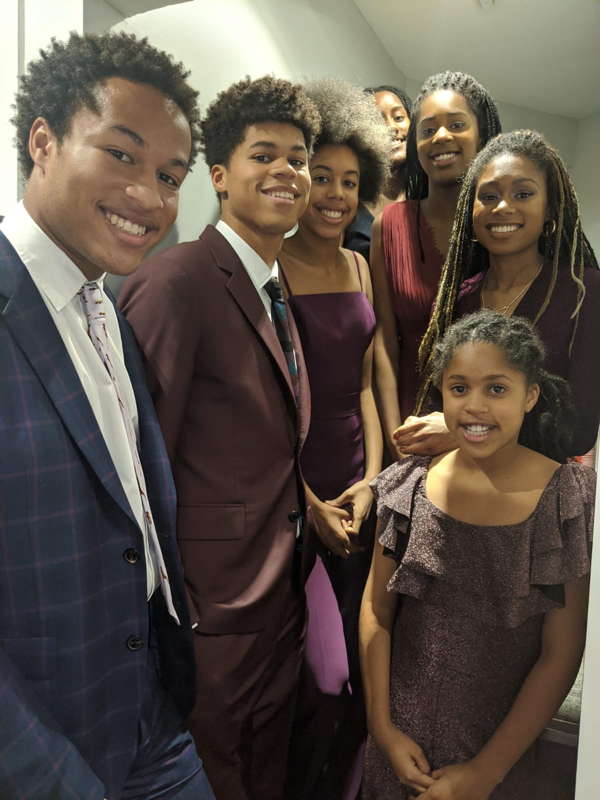 DISCUSSION: John Dante Prevedini leads a discussion about Music and the Visual World, including contributions from Celia Craig, Halida Dinova and Yekaterina Lebedeva.
DISCUSSION: John Dante Prevedini leads a discussion about Music and the Visual World, including contributions from Celia Craig, Halida Dinova and Yekaterina Lebedeva.
Seven Siblings
MIKE WHEELER listens to performances by members of the Kanneh-Mason family
It was good to be back in Nottingham's Royal Concert Hall again - Nottingham, UK, 13 June 2021 - and what better way for the venue to begin welcoming the return of its audience than with a concert by all seven of the city's own Kanneh-Mason siblings?
Instead of a rousing flourish to open with, we were given a warm, gentle greeting in the form of Eric Whitacre's The Seal Lullaby, played by the whole group. They then re-grouped in ones and twos and threes for the bulk of the programme. Isata, who also engagingly introduced most of the items, led the way with winning accounts of Gershwin's Three Preludes; her teasing start to No 1 belied the focused energy to come, while the barely whispered reprise in No 2 was nevertheless perfectly audible.
In fact, one of the overriding impressions was of the players' ability, individually and collectively, to fill the space with the quietest, most intimate tone. This was true, too, in transcriptions of two of Bartók's 44 Duos, in which Sheku was joined, first, by fellow-cellist Mariatu, then violinist Aminata. The stings in 'Mosquito Dance' were delivered with pin-point accuracy.
Mariatu, Aminata and Jeneba joined forces in a mellifluous account of the second movement of Felix Mendelssohn's Piano Trio 1, which led gently into Isata and Sheku playing their own arrangement of the traditional Welsh song Myfanwy, a touching tribute to the siblings' Welsh grandmother.
Shostakovich's Piano Trio No 1 was the biggest work on the programme. It may be a student piece, but so much of the mature composer is here in embryo. Braimah, Sheku and Isata, taking care not to swamp her brothers, kept the expressive contrasts in ideal balance: the plangency of the opening with the spiky energy later, sinister elements and sardonic humour with moments of poised lyricism. The moment at the end when the violin is lost and alone was genuinely poignant.
After Braimah and Jeneba's atmospheric account of Sea-Murmurs, Jascha Heifetz's transcription of one of Castelnuovo-Tedesco's Shakespeare songs, Jeneba had the spotlight to herself in Liszt's Hungarian Rhapsody No 2. It was good to hear it treated like a piece of music for a change, not just a virtuoso show-off exercise. Ear-catching details included some cimbalom effects, and even moments of latent humour I'd not noticed before.

The Kanneh-Mason siblings at the 2019 Royal Variety Performance
All seven players joined in their own collective arrangement of numbers from Fiddler on the Roof, including 'Tradition', 'If I Were a Rich Man', and 'Sunrise, Sunset', before signing off with what seems to have become a family calling-card, their own version (again) of Bob Marley's Redemption Song.
Copyright © 25 June 2021
Mike Wheeler,
Derby UK

MORE NOTTINGHAM ROYAL CONCERT HALL REVIEWS



